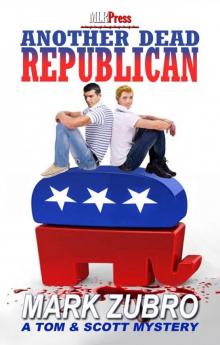- Home
- Mark Zubro
Pawn of Satan
Pawn of Satan Read online
Table of Contents
PAWN OF SATAN
Blurb
Copyright Acknowledgement
Dedication
One
Two
Three
Four
Five
Six
Seven
Eight
Nine
Ten
Eleven
Twelve
Thirteen
Fourteen
Fifteen
Sixteen
Seventeen
Eighteen
Nineteen
Twenty
Twenty-one
Twenty-two
Twenty-three
Twenty-four
Twenty-five
Twenty-six
Twenty-seven
Twenty-eight
Twenty-nine
Thirty
Thirty-one
Thirty-two
Thirty-three
Thirty-four
Thirty-five
Thirty-six
Thirty-seven
Thirty-eight
Thirty-nine
Forty
Forty-one
Forty-two
Forty-three
Forty-four
Forty-five
Forty-six
Forty-seven
Forty-eight
Forty-nine
Fifty
Fifty-one
Fifty-two
Fifty-three
Fifty-four
Fifty-five
Fifty-six
About the Author
Trademarks Acknowledgment
MLR PRESS AUTHORS
GLBT RESOURCES
PAWN OF SATAN
A Paul Turner Mystery
MARK ZUBRO
mlrpress
www.mlrpress.com
Amid concerns about his sons, detective Paul Turner’s new case involves a dead Catholic bishop in Chicago. The intrigue and scandal swirling around the bishop while he was alive are nothing compared to the danger and deception that follow his murder. Paul Turner has to balance his familial devotion with the expectations and pressures surrounding the murder of the prominent cleric. Local politicians and priests compete as they add risk and menace to an already difficult case. A smart, tough detective and a good, loving dad, Turner plunges into the slew of crises that confront him.
Copyright Acknowledgement
This book is a work of fiction. Names, characters, places, and incidents either are products of the author’s imagination or are used fictitiously. Any resemblance to actual events or locales or persons, living or dead, is entirely coincidental.
Copyright 2013 by Mark Zubro
All rights reserved, including the right of reproduction in whole or in part in any form.
Published by
MLR Press, LLC
3052 Gaines Waterport Rd.
Albion, NY 14411
Visit ManLoveRomance Press, LLC on the Internet:
www.mlrpress.com
Cover Art by Deana Jamroz
Editing by Neil Plakcy
ebook format
Issued 2013
This book is licensed to the original purchaser only. Duplication or distribution via any means is illegal and a violation of International Copyright Law, subject to criminal prosecution and upon conviction, fines and/or imprisonment. This eBook cannot be legally loaned or given to others. No part of this eBook can be shared or reproduced without the express permission of the publisher.
I wish to thank Bob Beran, Barb D’Amato, and Jamie Michel for their kind help and assistance.
ONE
Saturday 9:03 A.M.
Brian Turner thudded into the kitchen in the way only an athletic teenager can. He clumped to the refrigerator, yanked open the door, and gazed into the interior as if looking for the secrets of the universe. He spoke into the coolness. “You better talk to your other son.”
Paul Turner and his husband, Ben Vargas, looked up.
Ben said, “You’re wearing a pair of my black boxer briefs because?”
“All of mine are in the laundry.”
Paul said, “You make a huge deal about wearing only white silk boxers, and you’re parading around the house in those? Close the refrigerator door.”
Brian said, “I’m not parading.” He leaned into the refrigerator and selected a quart bottle of what looked to Paul like green, living, organic slime. Brian shut the door, unscrewed the cap, and guzzled straight from the bottle. Neither Paul nor Ben reminded him to get a glass. No one else would touch the health-conscious teen’s odd concoctions.
“Why should we talk to Jeff?” Ben asked.
Paul and Ben wore jeans and T-shirts. They’d been sitting at the kitchen table and drinking coffee. They were reading early editions of the Sunday Chicago papers, which were delivered to their corner grocery store on Saturdays before nine A.M.
Brian wiped his lips with the back of his right wrist, pulled out a chair, turned it around, spread his legs wide, and straddled it. He said, “You know how relentlessly cheerful he is, and how he loves to do his homework with his nerdy Homework Club?”
Ben said, “Don’t say nerdy.”
“Sorry.”
Jeff and the Homework Club conferenced over the Internet every Saturday morning before holding their online Chess Club meeting, another highlight of Jeff’s week.
As the boys’ grandfather had said last Christmas time when he visited, “At least he isn’t into drugs and heroin.”
Brian guzzled again. His parents watched his Adam’s apple undulate in awed fascination as half the bottle’s contents disappeared in a fifteen-second performance. More face wiping with the back of his wrist, then Brian said, “Well, he’s sitting in his wheelchair not moving. Not reading. Not playing games. Not texting. I asked him what was wrong. He told me to go to hell.”
Paul said, “What did you say?”
“You first.”
The two men exchanged a look. Ben said, “He was fine last night when I picked him up from the Junior Science League meeting at nine.”
Paul added, “When I got home and looked in his room, he was asleep. I put a bookmark in his book, closed it, kissed his forehead, shut off his light, and left. Nothing odd.”
“Did you have a fight with your brother?” Ben asked. Squabbles between the two boys did happen, verbal sparring mostly.
“I was at Monica’s and got home last night after he was asleep.”
“Did he eat breakfast?” Ben asked.
“I haven’t seen him so far this morning,” Paul replied.
Brian said, “He’s upset about something.”
Ben said, “Thanks for letting us know. We’ll check it out.”
“Don’t you have some kind of athletic practice to be at?” Paul asked.
Brian glanced at the time on the microwave. “Not for a couple hours. Plenty of time.” But he got up, shrugged his broad shoulders, stretched his torso, and put the nearly empty juice bottle back in the fridge. As he strode out the door, Ben said, “And do your laundry. Stop borrowing my clothes.”
Paul said, “And that does not mean you have permission to start wearing mine.” Paul knew his older son’s penchant for attempting to circumvent rules and directives with teenage legalese, as in you-didn’t-say-I-couldn’t-specifically do whatever he wanted permission to do or that he wished to get out of. They’d attempted to put an end to these Perry Masonish wranglings with varied degrees of success.
Since Paul had taught him to do the chore himself when he was in fifth grade, doing his laundry as little as possible was a skill Brian had honed to an art form, past the point of expertise. The first app the boy downloaded from the Internet might have been “The Teenager’s Guid
e to Not Doing Laundry.” If Brian didn’t need clean clothes for dates, Paul didn’t know if their older son would ever do a load of wash. They kept the door of his odiferous room closed.
After Brian was out of earshot, Ben said, “Something’s bothering him too.”
Paul gazed at his husband. “How can you tell?”
“He rarely slips and refers to Jeff or the things he does as nerdy. And that glop he drank?”
Paul nodded.
“It’s the stuff he’s most likely to drink when he’s down.”
“How can you tell which color goes with which mood?”
“I know he’s got two jars of the red-looking stuff in there, plus a blue one, and the green one he drank from just now. He goes for the green stuff whenever he’s down. It’s not always true.” He shrugged.
Paul sighed. “I haven’t noticed anything.” Brian was a pretty even-keeled teenager. He seldom appeared as a moody, depressed kid, more often pretty upbeat and willing to deal with the world on a sane basis, except when he begged for a tattoo for months on end when he turned fifteen. That phase seemed to have safely passed.
Ben said, “I haven’t seen any signs other than that, and it isn’t a totally reliable indicator.”
“We’ll have to pay a bit more attention to him as well. What do red and blue mean?”
“This isn’t a perfect system, but red usually means he’s got a date, blue for an important sports event. When it’s orange or yellow or purple or other colors, I have no idea. I just happened to notice those three.”
Paul walked down the hall toward Jeff’s room. When he was a few steps from the door, he heard a loud crash. He turned the corner.
In his left hand Jeff held half of a newly-splintered trophy. Paul saw the empty space in Jeff’s trophy shelf. He’d won several junior league chess championships. He held a still intact trophy in his right hand.
“Jeff!”
The boy looked at his dad. Jeff took the remnants of the trophy and banged them against his desktop. “It won’t break.” The remains of the top half were scattered on the floor. Jeff kept banging the bottom half of the trophy on the desk.
Paul crossed the room and stood next to his son. “You going to smash them all?” Paul looked back to the doorway. Ben and Brian stood there.
“All of them.” But Jeff ceased banging the trophy bottom against his desk. Paul saw that there was now a significant groove ground into the desktop.
Paul sat down on the edge of the bed. Jeff looked at him. The boy lowered both hands and put the still-intact trophy and the half-broken one in his lap. Paul saw streaks of tears on his cheeks.
The nearly thirteen-year-old rarely cried. He claimed he didn’t like to show emotion. Paul presumed it was because Jeff thought crying would show people he was weak. As a child who had dealt with spina bifida every instant of his existence, Jeff was sensitive to showing any sign of weakness, no matter how often his dads told him how proud they were of him, that physical strength wasn’t the only kind of strength, and that there were lots of ways to be strong and brave.
Paul said, “Smashing things is serious.”
Jeff said, “I know.”
“Do you want to tell me what’s wrong?”
Jeff hung his head for a few moments then looked up at his dad, then to the doorway, then down again.
Paul looked at Ben and Brian. He guessed his son wanted to talk to him without an audience. He said, “Could you guys leave us alone for a couple minutes?”
After he heard the bedroom door click shut, Paul turned his attention back to Jeff.
The boy kept his head down. Paul put his hand on Jeff’s shoulder. “If you don’t want to talk about what’s wrong, it’s okay. If it’s something I can help with, I will. I won’t know what to do or say until you tell me.”
Jeff muttered, “There’s nothing you can do. You won’t understand.”
Paul massaged Jeff’s shoulder and said, “I can try my best. That’s what I expect you to do. That’s what I expect of myself. We’ll talk as long as it takes for me to understand.”
Jeff’s head still hung down. Breaking things was usually the result of his attempting dangerous maneuvers with his wheelchair or mucking about with science experiments without his dads’ supervision. Deliberately smashing something was new and told Paul that whatever was bothering Jeff was serious indeed.
Violence may have been part of Paul’s job as a Chicago police detective, but it was not part of their home lives. Paul had never hit either of his boys. He’d always felt that talking and example and using other forms of punishment were more effective.
Brian had said once when he was thirteen, “Sometimes I wish you did hit.”
Paul had asked why he felt that. Brian had said, “Because these long talks can be really boring.”
Paul did what his parental and detective training told him to do at crisis moments. He waited. Son or suspect, usually they wanted to talk. Jeff’s smashing his favorite trophy meant he very much wanted attention for something.
“You’re not gonna leave and go to work?” Jeff asked.
“I’ll always be here for you no matter how long it takes.”
His son finally looked up. He muttered, “I want to have kids like you and Ben.” His face turned crimson.
Paul had had the sex talk with each of his boys. Explaining mechanics had been easy. Answering questions about him and Ben had involved long, complex, detailed discussions of love centering on, “We love and care for each other and you kids like other moms and dads.”
His intuition told him that Jeff’s concerns might very well involve the mechanics or level of success someone with spina bifida could achieve in actual intercourse. He’d expected the boy would deal with this someday. As far as Paul was concerned, whether or not Jeff involved his dads in how, what, and when he learned specifics, was up to him. If the boy wanted help in dealing with something this personal, he would find a way to help his son. He hadn’t expected violence.
“Did you talk to your doctor about this?”
“No, she’s a woman. I can’t say this stuff to her.”
“Would you like a different doctor?”
“No, she’s nice. And a new doctor would be a stranger.”
Paul said, “You’ve looked on the Internet, right?”
Jeff nodded.
“And what did it say?”
“I’m kinda not sure.”
“You want to go over some Web sites together?”
Jeff’s eyes brightened and there was a bit of a smile at the edge of his lips, but the boy hid his eagerness behind a shrug. “Okay, I guess.”
“You’ll miss your Chess Club meeting.”
“That’s okay.” His fingers flew over the keyboard and the computer screen changed rapidly. A few mouse clicks later, he nodded and said, “The other kids will take care of it.”
They looked at the different sites, which gave information about people with spina bifida and sexual activity. They went over them and the information they gave for quite some time, discussing details and possibilities. If Paul felt that Jeff was becoming uncomfortable with specifics that were too intimate, he let the boy take the lead.
Near the end Paul suggested, “You should go over all this with your doctor to be certain. We’re both pretty smart, but she’s a professional. And don’t worry about discussing this stuff with her because she’s a woman. She’s got lots of spina bifida patients. My guess is she’s heard these questions a thousand times.”
“Okay.”
They turned from the computer.
“Why was this a problem this morning, and why were you smashing things?”
“I was mad because…”
Paul watched his son’s eyes.
“Arvin teases me about it.”
Arvin was Jeff’s best friend. They’d known each other since kindergarten. Arvin was a short, scrawny kid with masses of freckles and curly brown hair.
“What does Arvin care about you having kid
s?”
“Uhh… It’s not exactly that.”
Paul waited.
Jeff looked up, looked down, stared at a poster of a chess game in progress on the wall, waited a few more moments and then met his dad’s eyes. “We like the same girl.”
“Do you want to tell me who that is?”
“Ardis.”
“The girl in your Homework Club?”
“Yeah.”
Paul remembered Ardis as slightly overweight with a tendency to giggle when she found out Brian would be chauffeuring the kids to an event.
“Does she like either of you?”
Jeff shrugged. “I haven’t talked to her.”
“Did Arvin?”
“He didn’t come out and say it, but he kind of insinuated.” His voice lowered to a whisper. “He says he did it.” His son’s emphasis on the word “it” left no doubt in Paul’s mind that the boy meant sex. Jeff continued. “He tried to make it sound like he was a big deal expert.” He shook his head. “I think maybe he was lying.”
Paul nodded. “A lot of kids brag.”
“He knew a lot of details.”
Paul said, “Lots of kids know details because of the Internet.”
“He was mean about it. He said I was a cripple, and I’d never have kids.”
“I’ll talk to his parents.”
“No, Dad, please. I’d like to handle it myself.”
Paul pointed to the smashed trophies. “I’m not sure that was a good way to handle it.”
Jeff drew a shuddering breath. After the longest pause so far, he whispered, “Some days I hate this wheelchair and my life.”
As the tears flowed, Paul embraced his son. This was the first time in several years that the boy’s frustration had erupted so dramatically. They’d often talked about his life shuffling between crutches and a wheelchair, but Jeff hadn’t mentioned it for a while. The contrast with his very athletic older brother had on occasion been the spark that led to greater frustration.
With the near onset of his teen years and desire for greater independence and autonomy, Paul expected this wouldn’t be the first time they would deal with sexuality.
After a few minutes, Jeff’s tears subsided. He moved from his dad’s embrace. Jeff said, “I’m sorry, I shouldn’t cry.”
“You know that’s okay.”

 Ring of Silence
Ring of Silence A Conspiracy of Fear
A Conspiracy of Fear Pawn of Satan
Pawn of Satan Safe
Safe Another Dead Republican
Another Dead Republican Black and Blue and Pretty Dead, Too
Black and Blue and Pretty Dead, Too Alien Home
Alien Home Dying to Play
Dying to Play Alien Victory
Alien Victory